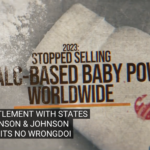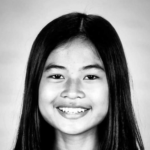
Foreign interference probe exposes links to “witting” lawmakers in Ottawa.

OTTAWA — The capital of one of the world’s most stable democracies is gripped by growing panic about foreign agents working in elected office. A bombshell report by Canadian lawmakers has unnerved Parliament Hill, alleging that unnamed politicians have been covertly working with foreign governments.
The revelation in heavily redacted findings released this week by an all-party national security committee adds intrigue to a separate and ongoing inquiry into foreign interference in Canada’s 2019 and 2021 elections.
The new report from the National Security and Intelligence Committee of Parliamentarians is the first to suggest that lawmakers in Canada’s parliament may have helped foreign actors meddle in political campaigns and leadership races. Heightened anxiety in Ottawa about foreign interference comes in the middle of historic global elections where factors such as artificial intelligence and emboldened foreign powers are testing the resilience of democratic systems.
Prime Minister Justin Trudeau has been on the defensive since the allegations broke Monday. Conservative Leader Pierre Poilievre is calling on the government to name names.
“The national security committee indicates there are members of this House that have knowingly worked for foreign hostile governments,” Poilievre said Wednesday. “Canadians have a right to know who and what is the information — who are they?”
The findings put pressure on Canada’s national police force to investigate potential criminal charges. The report also refuels debate on the ability of the federal government’s deterrence mechanisms to curb foreign interference in a country whose political and legal system is considered one of the highest-performing in the world.
The all-party NSICOP said Monday that it has reviewed intelligence that suggests “semi-witting or witting” parliamentarians have worked with foreign missions to mobilize voters during a political campaign; have taken cash “knowingly or through willful blindness” from foreign missions or their proxies; and have shared privileged information with foreign diplomatic officials.
The committee with top-security clearance said it based its findings on more than 4,000 documents and some 1,000 pieces of evidence. Its report said China remains the largest foreign interference threat to Canada with India the second.
The intelligence included a claim that unnamed parliamentarians are taking direction from unnamed diplomats to “improperly influence” their colleagues or parliamentary business to the benefit of a foreign state.
One of the most damaging lines in Monday’s report points out Canada’s failure to address long-standing challenges in how national security information can be used in criminal proceedings. The report says this is one reason why criminal charges for the potentially illegal activities are unlikely.
Deputy Prime Minister Chrystia Freeland told reporters Tuesday that she takes the issue seriously. She deflected when asked if Canadians have the right to know the identity of the parliamentarians involved.
“We should recognize this is a new time,” she said, adding that authoritarians want to undermine democracies by sowing public distrust in government.
Freeland would not commit to releasing names, nor did she agree that “sunlight” on the issue would benefit democracy. On Wednesday, after her Liberal party’s weekly caucus meeting, she ignored questions on the topic.
The Trudeau government called an inquiry into foreign interference in September in the wake of claims that the Chinese government helped mobilize voters against a Conservative candidate in western Canada and helped elect another as a Liberal in the Toronto area.
It tasked Justice Marie-Josée Hogue with investigating foreign interference and election meddling, a topic that has also captured the interest of U.S. Congress.
Last fall, Conservative MP Michael Chong appeared before the congressional-executive commission on China to testify about being targeted by Beijing because of his defense of Uyghur issues.
Chong discovered through media reports that a Chinese diplomat had been assigned to collect information on him and his family. Canada’s spy agency has warned other Canadian parliamentarians, including NDP MP Jenny Kwan, that they were also being surveilled by China.
Hogue’s early findings stated that foreign interference did not significantly influence the 2019 or 2021 federal elections in a way that would have changed the fact that Trudeau’s Liberals won back-to-back minority governments.
The Conservatives were initially quiet about this week’s revelations, but on Wednesday Chong pressed the government to identify the parliamentarians alleged to have colluded with foreign state actors.
“We all know that no responsible government would reveal names under these types of confidential circumstances,” Public Safety Minister Dominic LeBlanc responded on the floor of the House of Commons.
LeBlanc remained resolute Thursday against calls to release any names based on preliminary information.
“It’s important for Canadians to understand that these names are contained in intelligence reports, in some cases, it’s uncorroborated or unverified intelligence information,” he told a parliamentary committee studying foreign interference. “The idea that there’s a perfect list of names that is entirely reliable that should be released to the public is simply irresponsible.”
David McGuinty, chair of the NSICOP, which published the buzzy redacted report, said the decision to publicize the names of lawmakers is outside of his control.
McGuinty and the nine other NSICOP members with top-secret security clearance are bound by Canada’s Security of Information Act and risk prosecution if they inadvertently reveal classified information, he said.
He wouldn’t say if he’s bothered by sitting in the same party caucus with potential abettors of foreign interference.
“I’m more concerned about the fact that now the government has to move forward on this,” McGuinty said.



